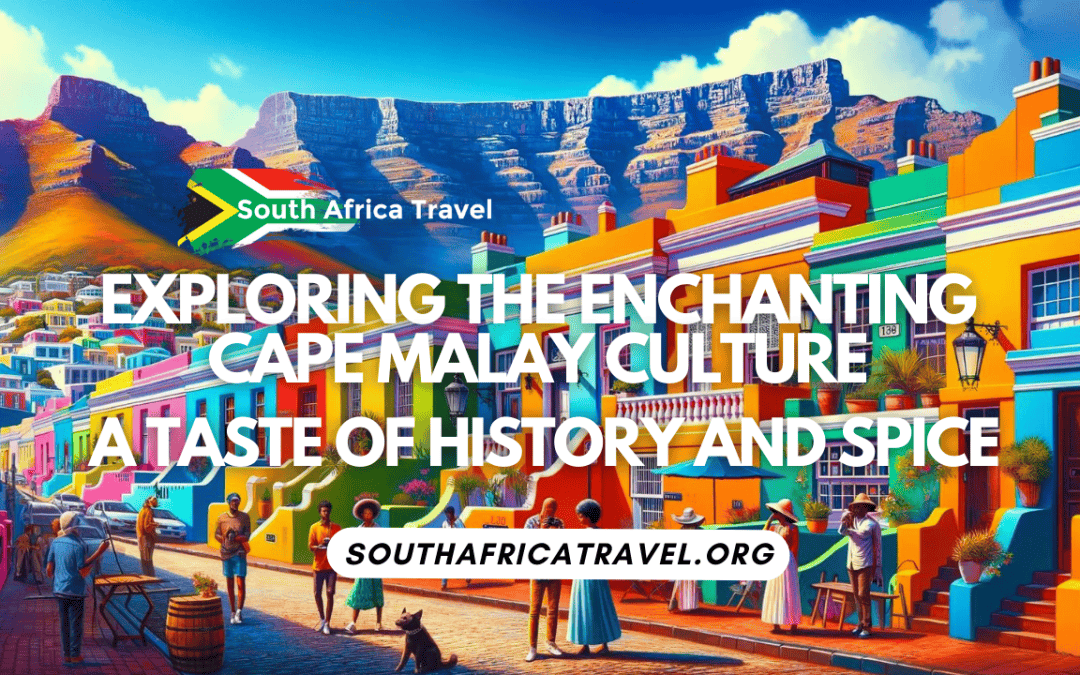capemalayculture #capetownhistory #culturalexperience #culinaryheritage #southafricanculture #historicaltours #capetowncuisine
Introduction
The vibrant and diverse culture of the Cape Malays in Cape Town, South Africa, will captivate you. The spice trade and the arrival of slaves from Southeast Asia and the Indian subcontinent deeply intertwine this community’s rich history. Today, their unique blend of traditions, cuisine, and warm hospitality continues to leave a lasting impression on visitors from all over the world.
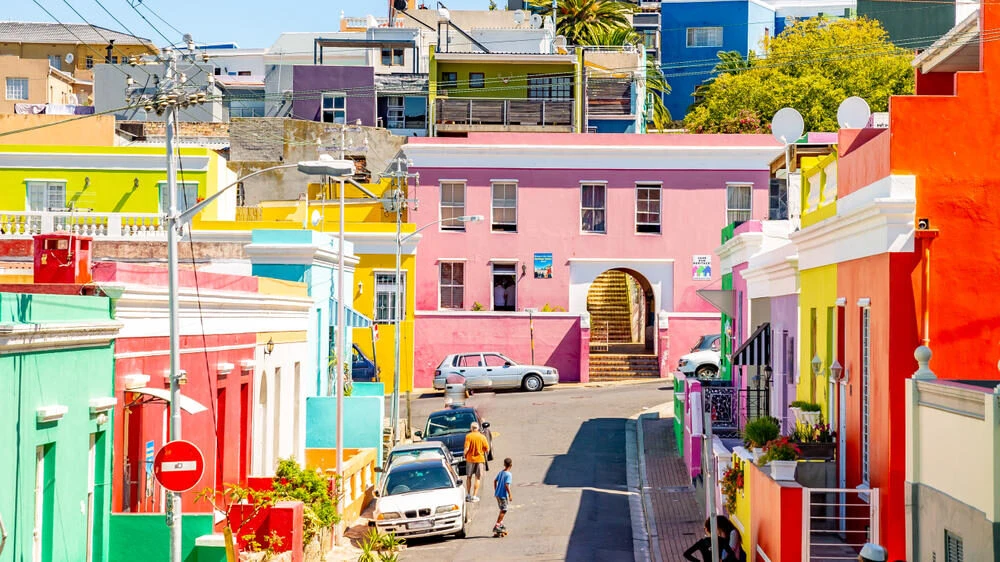
Cape Malay Culture: A Brief Overview
The Cape Malay culture is a fusion of Malay, Indonesian, and African influences. It emerged during the colonial era, when the Dutch settled in Cape Town in the 17th century. The Dutch brought slaves from various parts of Asia, including Malaysia and Indonesia, to South Africa, bringing with them their customs, music, language, and culinary traditions.
This vibrant culture is known for its distinctive music and dance forms, such as the Cape Malay Choirs and the popular Cape Malay cooking traditions.
Cape Town’s Rich Culinary Heritage
Cape Malay cuisine is renowned for its unique flavors and aromatic spices. It reflects the diverse heritage of the community, blending Indonesian, Malay, and African culinary traditions. The famous Cape Malay curry, bobotie, samoosas, and koeksisters are among the signature dishes.
One cannot visit Cape Town without experiencing a traditional Cape Malay meal. The blend of spices and flavors will transport your taste buds on a sensory journey.
Apart from its culinary heritage, the Cape Malay culture is also characterized by colorful traditional clothing, intricate handmade crafts, and a warm tradition of hospitality that welcomes visitors with open arms.
Immerse yourself in the enchanting Cape Malay culture and embark on a journey that pays homage to history, spice, and the warm-hearted people who continue to preserve and share their rich traditions with the world.
Cape Malay Cuisine: A Fusion of Flavors
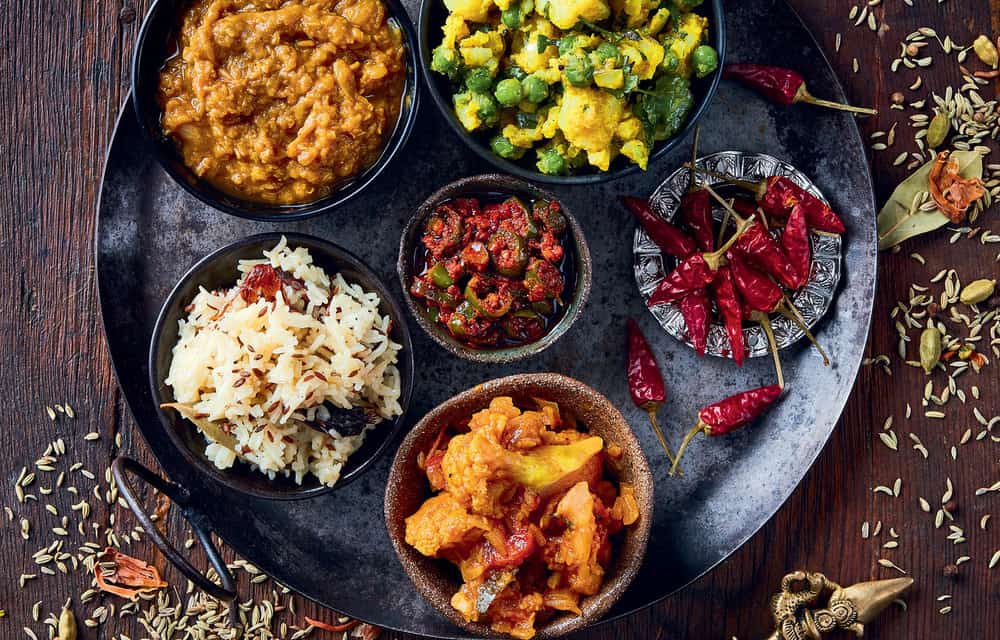
When it comes to culinary experiences, Cape Malay cuisine stands out as a delightful combination of flavors that reflects the rich history and diverse cultural influences of Cape Town, South Africa. With roots dating back to the 17th century, when slaves from Southeast Asia were brought to the Cape, this unique cuisine has evolved into an enchanting blend of indigenous African, Dutch, Indonesian, and Malaysian influences.
Traditional Cape Malay Recipes
Cape Malay cuisine is known for its fragrant spices, vibrant colors, and bold flavors. Some of the traditional dishes that have become staples in Cape Malay households include:
- Bobotie: A South African version of a meatloaf, bobotie is a fusion of flavors, with minced lamb or beef, curry spices, and a delicious egg-based topping.
- Samoosas: Crispy triangular pastry pockets filled with a variety of savory fillings, such as spiced minced meat, vegetables, or cheese.
- Bredie: A slow-cooked meat and vegetable stew, typically prepared with lamb or mutton and seasoned with aromatic spices like cinnamon, cardamom, and cloves.
- Koeksisters: a sweet and sticky dough twisted into a braided shape, deep-fried until golden, and then dipped in a sugary syrup. A favorite Cape Malay treat!
Indonesian and Malaysian cuisine influences
The Indonesian and Malaysian influences on Cape Malay cuisine are evident in the generous use of spices, such as cinnamon, cloves, ginger, and cardamom, as well as the inclusion of ingredients like coconut milk and desiccated coconut. The slaves from these regions brought these flavors and techniques to Cape Town.
The Cape Malay community’s culinary traditions have not only preserved the flavors of the past but have also evolved with contemporary influences. Today, Cape Malay restaurants and households continue to offer a wide array of dishes that celebrate the region’s cultural heritage and pay homage to the ancestors who introduced these culinary traditions.
Whether you are a food enthusiast or simply looking to explore new flavors, a journey into Cape Malay cuisine promises a taste experience like no other. So, be sure to savor the enchanting flavors of this unique fusion cuisine and immerse yourself in the captivating history and spice of Cape Malay culture.
Traditional clothing and music in Cape Malay
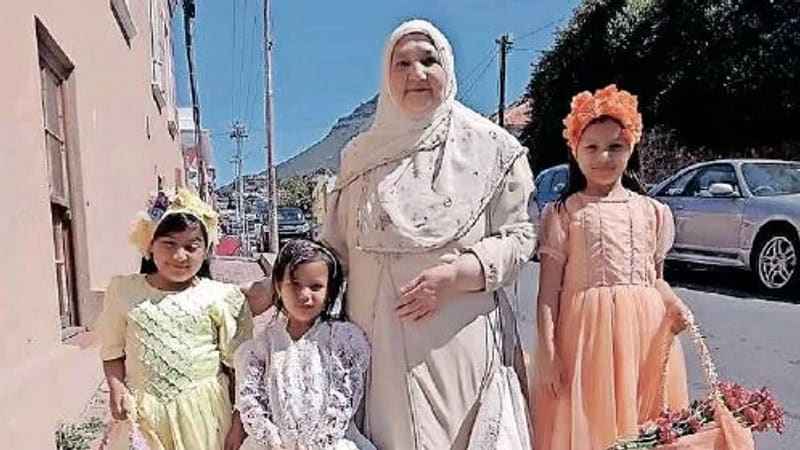
The Cape Malay culture is a vibrant and distinct community in South Africa that is known for its rich history and unique traditions. Exploring the Cape Malay culture is an enchanting experience that provides a taste of both history and spice.
The culture of Cape Malay emphasizes fashion and style.
Traditional clothing is one of the most captivating aspects of Cape Malay culture. The fashion and style of Cape Malay attire are a fusion of Indonesian, Malaysian, and African influences. Women frequently don beautifully patterned dresses known as “baadjies” or “baju kurungs,” typically crafted from vibrant and colorful fabrics. A headdress known as a “doek” or “kopdoek” often accompanies these dresses, contributing an elegant touch to the ensemble. Men traditionally wear “sarongs” or “broekies,” loose-fitting pants made from various fabrics. These traditional outfits express the cultural heritage of the Cape Malay community and create a visually stunning display of their identity.
Cape Malay Music’s Melodies and Rhythms
Music plays an integral role in Cape Malay culture, and the melodies and rhythms of Cape Malay music are truly mesmerizing. Influenced by traditional Malay folk music, African beats, and Western harmonies, Cape Malay music is a fusion of different cultural elements. Commonly, musicians use instruments like the guitar, accordion, and tabla to create the distinctive sound. The lyrics of Cape Malay music often tell stories of love, history, and social issues, making it a cultural and emotional experience. Festivals, weddings, and traditional gatherings frequently feature popular Cape Malay music genres like “Ghoema” and “Nederpop.”
Exploring the enchanting Cape Malay culture is an opportunity to immerse oneself in the richness of history and spice. From the captivating traditional clothing to the mesmerizing melodies and rhythms of their music, the Cape Malay culture is truly a treasure to experience.
Cape Malay’s Heritage Sites and Historical Landmarks
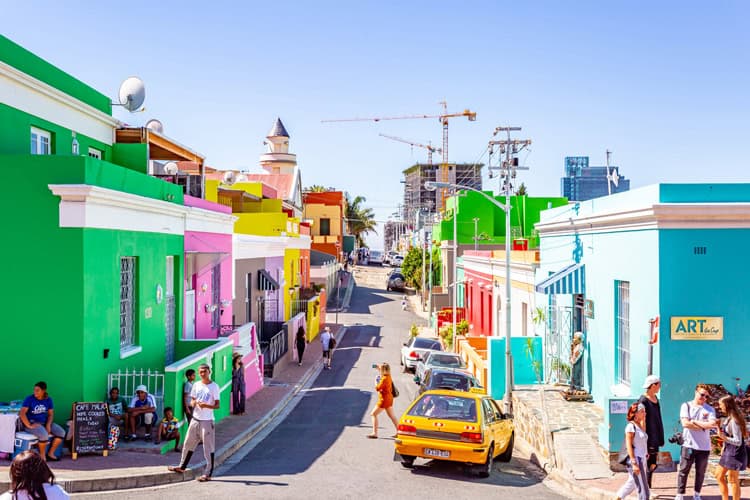
Exploring the Bo-Kaap Neighborhood
Discover the rich and vibrant Cape Malay culture by exploring the colorful Bo-Kaap neighborhood in Cape Town, South Africa. Bo-Kaap, renowned for its picturesque streets lined with brightly painted houses, is a cultural treasure trove awaiting exploration.
Take a stroll through the cobblestone streets and immerse yourself in the history and heritage of the Cape Malay people. Originally settled by slaves brought to South Africa by the Dutch East India Company, this neighborhood has become a symbol of resilience and cultural heritage.
In addition to its captivating architecture, Bo-Kaap is also home to an array of lively markets, spice shops, and traditional Malay eateries. Indulge your senses as you savor the fragrant spices and flavors of traditional Cape Malay cuisine. A savory egg-based custard tops the flavorful baked mince meat dish, bobotie, an iconic dish.
The Cape Malay Museum: Preserving Cultural Heritage
To delve even deeper into the history and heritage of Cape Malay culture, a visit to the Cape Malay Museum is a must. Located in the heart of Bo-Kaap, this museum showcases the rich diversity and contributions of the Cape Malay community.
Enter the museum and immerse yourself in the stories told through the exhibits, photographs, and artifacts on display. From the struggles faced by the early Cape Malay community to their contributions in arts, music, religion, and cuisine, the museum provides a comprehensive insight into their fascinating heritage.
The Cape Malay Museum also offers guided tours, allowing visitors to gain a deeper understanding of the exhibits and the stories behind them. Engage with knowledgeable guides who are passionate about sharing the unique heritage of the Cape Malay people.
Whether you explore the vibrant streets of Bo-Kaap or visit the Cape Malay Museum, your journey through the enchanting Cape Malay culture promises to be a captivating and memorable experience, filled with history, spice, and rich cultural heritage.
Festivals and Celebrations
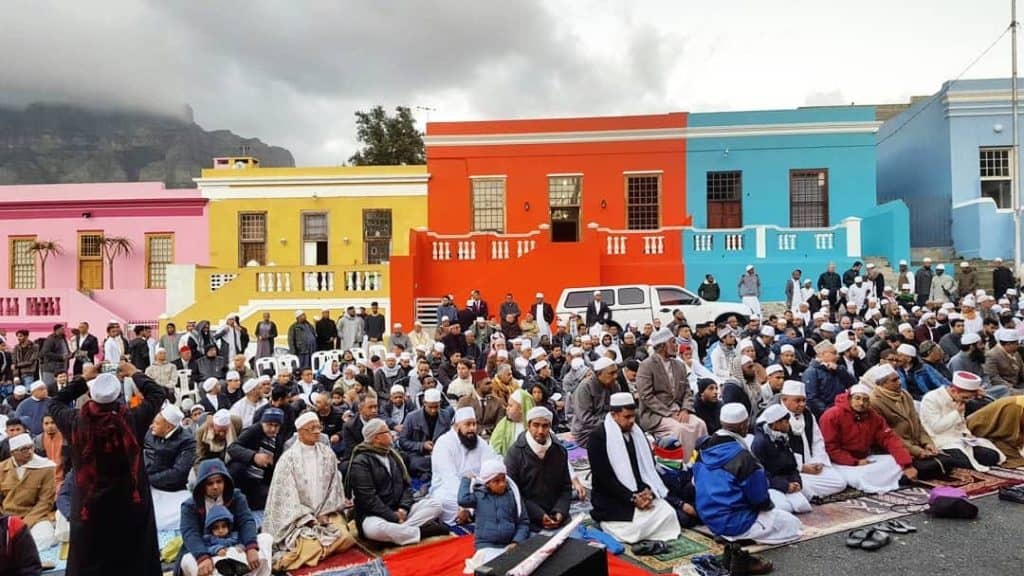
Various festivals and celebrations highlight the rich cultural heritage of the Cape Malay community in South Africa, showcasing their unique history and traditions.
Eid al-Fitr: Celebrating the End of Ramadan
One of the most significant festivals for the Cape Malay community is Eid al-Fitr, which marks the end of the Islamic holy month of Ramadan. This joyous celebration involves feasting, prayers, and the exchange of gifts. Families come together to share delicious traditional dishes such as samoosas, bobotie, and biryani. It is a time for forgiveness, gratitude, and spreading joy within the community.
The Cape Malay Choir Festival: A Musical Extravaganza
The Cape Malay Choir Festival is an annual event that showcases the vibrant musical traditions of the Cape Malay community. Choirs from different neighborhoods come together to perform traditional songs with a fusion of Malay, African, and European influences. The festival celebrates the rich history of the Malay choirs and their contribution to the cultural diversity of South Africa. It is a vibrant display of colorful costumes, soulful harmonies, and energetic performances that attract both locals and tourists alike.
These festivals offer a glimpse into the enchanting Cape Malay culture, allowing visitors to experience the community’s deep-rooted traditions and the warm hospitality of its people. The combination of aromatic spices, captivating music, and captivating storytelling creates an immersive experience that leaves a lasting impression on all who attend.
In conclusion, exploring the enchanting Cape Malay culture through its festivals and celebrations is like taking a journey into the heart and soul of a community that continues to preserve its cultural heritage. From Eid al-Fitr to the Cape Malay Choir Festival, these events showcase the beauty, history, and spice that make the Cape Malay culture truly unique. So, if you ever have the opportunity to experience these celebrations firsthand, be prepared to be captivated by the rich tapestry of traditions, flavors, and rhythms that define the Cape Malay culture.
Cape Malay Art and Crafts
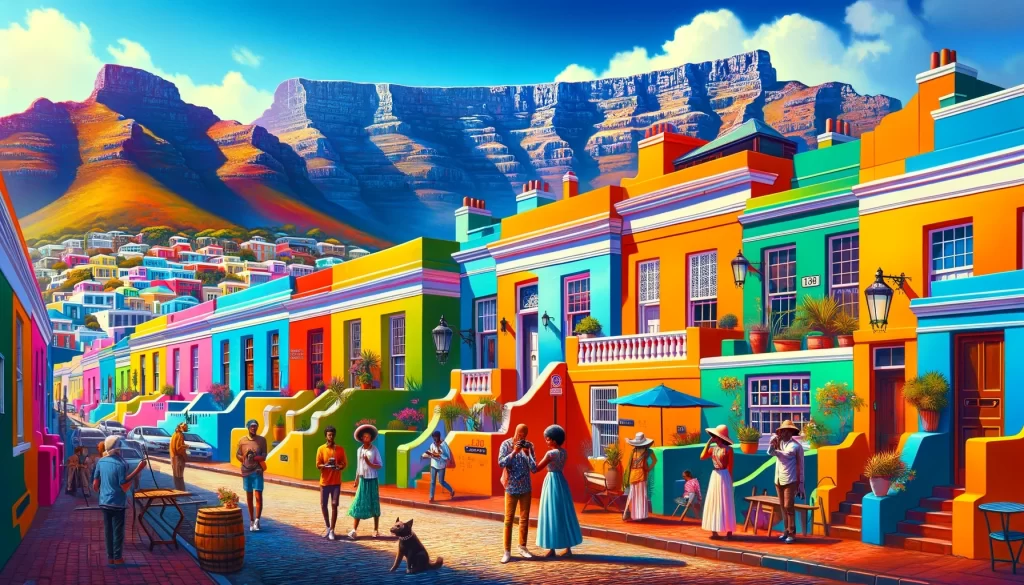
Vibrant Colors and Intricate Designs
Rooted in South Africa’s history, the Cape Malay culture is a melting pot of influences from African, Asian, and European traditions. One of the most captivating aspects of this culture is its art and crafts, which showcase vibrant colours and intricate designs that reflect the Cape Malays’ rich history and diversity.
Traditional Cape Malay art is characterized by its bold use of colors, with vibrant hues such as bright blues, greens, and reds dominating the designs. These colors not only add visual appeal to the artworks but also hold symbolic meanings within the Cape Malay community. The intricate patterns and designs found in Cape Malay art often depict elements of nature, such as flowers, birds, and geometric shapes. The harmonious combination of these motifs creates a visual feast for the eyes.
Handicrafts as Cultural Expression
Handicrafts play a significant role in Cape Malay culture, serving as a means of cultural expression and preserving the heritage of the community. From intricate beadwork to handwoven textiles, each handicraft tells a unique story and showcases the skills passed down through generations.
One of the most famous Cape Malay handicrafts is the Malay keris, a traditional dagger with a distinctive wavy blade. This weapon not only serves as a symbol of protection but also holds cultural significance within the community. Other noteworthy handicrafts include beautifully embroidered textiles, hand-carved wooden crafts, and beaded jewelry, each reflecting the creativity and craftsmanship of the Cape Malay people.
Exploring Cape Malay art and crafts offers a glimpse into the cultural heritage and traditions that have shaped the community. From the vibrant colors and intricate designs to the expressive handicrafts, these artistic expressions serve as a testament to the beauty and diversity of the Cape Malay culture. Whether you’re a history enthusiast or simply appreciate the aesthetics, experiencing Cape Malay art and crafts is a journey through time and a celebration of cultural heritage.
Conclusion

The Cape Malay culture is a fascinating blend of history, spice, and enchantment. Exploring this unique culture provides visitors with a journey of discovery into the rich traditions, delicious cuisine, and warm hospitality of the Cape Malay people.
Embracing Cape Malay Culture: A Discovery Journey
Immersing yourself in Cape Malay culture allows you to experience the vibrant history of the people who have shaped Cape Town’s city. From the colorful Bo-Kaap neighborhood with its iconic pastel-colored houses to the Cape Malay Museum, there are numerous opportunities to delve into the heritage and stories of this community.
Recommended Cape Malay Restaurants and Experiences
To truly experience the Cape Malay culture, indulging in the delicious traditional cuisine is a must. Cape Town offers a wide array of restaurants and eateries that specialize in Cape Malay dishes, such as bobotie, samosas, and denningvleis. Some notable recommendations include Biesmiellah, the Eastern Food Bazaar, and Bo-Kaap Kombuis.
In addition to the culinary delights, various experiences allow you to engage with the Cape Malay culture on a deeper level. These include cooking classes to learn how to prepare authentic Cape Malay dishes, Cape Malay music and dance performances, and guided walking tours through the historic Bo-Kaap neighborhood.
Book a customized private tour of Cape Town City with SouthAfricaTravel.org for the ultimate experience!
To make the most of your exploration of the Cape Malay culture and the city of Cape Town, consider booking a customized private tour through SouthAfricaTravel.org. Their knowledgeable guides will ensure a memorable and personalized experience, taking you to the best attractions, restaurants, and hidden gems in the city.
By embracing Cape Malay culture, you will not only gain a deeper understanding of its rich history, but also create lasting memories of the enchanting flavors, sounds, and colors that make this culture truly unique.

